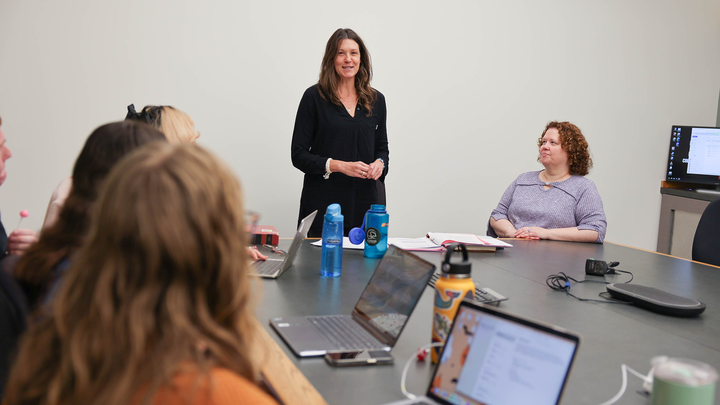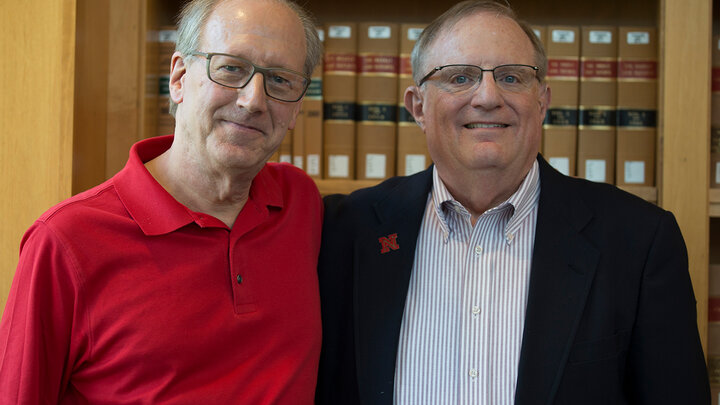The Legal Analysis, Writing and Research (LAWR) program at the College of Law equips first year students with skills they rely on throughout their legal careers. With a focus on integrating the research and writing basics, the course also emphasizes professionalism, career planning, and ethics.
Chelsi Hayden, associate clinical professor of law and director of the LAWR program, said one of its greatest strengths is the dedication of the adjunct instructors who teach various sections. Their passion and commitment are apparent in their interactions with students, and they often share current lessons from practice.
“Combining academia with legal practice helps keep us current and shows students what the practice of law is like,” she said. “It helps expose students to the expectations of partners, judges, and courts, and brings that element of reality into the first year.”
David Dirgo, who has taught in the program for 22 years, said a recent increase in the instructor to student ratio has allowed him to better connect with students. He has also noted greater cohesion throughout the sections, both in the content being shared and methods of instruction.
“It’s reassuring to see consistency and know that what I thought was good writing is something that other people think is good writing,” he said. “A lot of us have a general consensus of what’s important and how to try and pitch it to students.”
While this consensus is evident, Miranda Hobelman, ’11, said each instructor incorporates their own perspective. For her, a priority is meeting students’ specific needs and showing that she genuinely cares about their success.
“I think everyone approaches it authentically to who they are as a practitioner, as an instructor and as a person,” she said. “But we have foundational anchor points for what students need to know.”
The technical aspects of the LAWR program have also evolved. Almost all resources and assignments have moved to a digital format, and documents have been restructured to more closely resemble what students may one day see in court. Additionally, the introduction of live grading allows students to hear feedback face-to-face.
“It helps them understand how a legal reader might think about the argument, which is something that can be so new and foreign,” Hayden said.
Each step of the course has been intentional, Hayden said, keeping in mind where it fits into the students’ legal education as a whole. As a part of the first-year curriculum, LAWR instructors are teaching foundational skills that serve as a basis for how to process and analyze legal questions.
“It can be difficult for many reasons, as we are the first people to give them constructive feedback,” she said. “But I often hear from students that this is the class they use in their work, this is the class that helps them structure their exams.”
Soffi Olson, ’26, applied many of the skills she learned in the LAWR program in her memo and brief writing as a clerk this summer. The practical aspects of the class stayed with her, especially as a first-generation law student.
“Legal writing is a whole new ball game,” she said. “It was exciting to try something new and see how I improved with each assignment.” Olson continues to learn in the role of teaching assistant by seeing the different kinds of arguments crafted by current students.
She hopes to be a resource for them not only on their assignments, but also in the adjustment to law school. “I try to help them understand that they’re not going to have it perfect the first time,” she said. “The biggest thing is to help them grow every time they’re writing and ease their nerves.”
Looking ahead, Hayden said she hopes the program continues to grow and evolve, staying abreast with current changes and adapting the course as needed to ensure that students are equipped with the skills they will need in practice.




